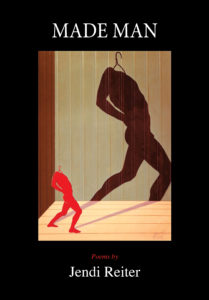The time has come “to give a reason for the hope that is in me” (1 Peter 3:15).
Since March 2021, I’ve been a Year One student at the Temple of Witchcraft. Co-founded in 1998 by Christopher Penczak, Steve Kenson, and Adam Sartwell, TOW offers online and in-person courses in magical training and personal development. My current program is an independent study course conducted by email and audio recordings. It has five levels, with each course lasting a year and a day. TOW is an ecumenical tradition combining neopaganism, witchcraft, and magic. It is not specifically “Wiccan” but some practices and beliefs do overlap.
When I run into old acquaintances who ask what I’ve been doing lately, I generally say, “Oh, you know, revising my incest novel and watching my leg hair grow.” I’m coy about discussing my new spiritual path because, number one, I’ve barely learned enough to describe it accurately, and number two, it’s exhausting to anticipate people’s negative misconceptions about the Craft. I’m not worshiping the devil, and I’m not crazy (or not any more crazy than before). Usually I make a joke that I’m studying witchcraft by correspondence course but can’t turn Donald Trump into a toad because spell-work is Year Two.
A more substantial cause for my reticence is that I don’t wish to disparage other faiths or be a one-right-way evangelist, as I was during my evangelical days. But I can’t really explain why witchcraft feels right, without criticizing some features of Bible-based religion and its institutions.
It’s an analogous problem to explaining my transition. How can I describe what it feels like to be a man, without contrasting it to womanhood? And if I do that, won’t I inevitably fall into binary stereotypes, or make over-broad generalizations? One could, after all, wear neckties and be sexually assertive and not apologize for one’s career ambitions, and still identify as female. And one could remain in the church without believing in the Bible or the creeds (which I suspect is the majority of Episcopalians).
During the 2020 lockdown, I binge-watched “BoJack Horseman” on Netflix. Diane Nguyen, an introverted human journalist, and Mr. Peanutbutter, a humanoid Golden Retriever who’s very impulsive and outgoing, have a realistic bad marriage: neither of them is really at fault, they’re just fundamentally mismatched in their energy. They have to face that it’s not working in the Season 4 episode “What Time Is It Right Now”. After Mr. Peanutbutter’s latest grand gesture goes awry, Diane tearfully explains that their marriage is like an optical illusion. If you squint at it just right, it suddenly makes sense. But she’s so tired of squinting.
That’s exactly how I felt about trying to stay a woman, or a Christian. With a lot of effort, I could sorta make it work. I could shoehorn my personality and beliefs into something superficially female/Christian, and try to ignore the aspects of that identity that didn’t apply to me…and all the people constantly assuming those aspects did apply…and all the other people invoking our shared identity to justify transphobia and other oppressions. Or I could just…NOT.
While my church and denomination have been supportive of queer people, my deconversion and transition have mutually amplified each other, because once I discovered how it felt to “fit” in one area of my life, I couldn’t settle for “almost good enough” in other important areas.
So, why the Temple of Witchcraft? I was looking for formal training that would provide the liturgical richness and theological depth that I missed about Christianity. I’d bought some spell books in metaphysical shops, but it was hard to have faith in their recipes when I didn’t know the reasons behind them. Many folks who leave Bible-based religion for witchcraft are seeking something more female-led and goddess-centric. That wasn’t me. I asked my Tarot community about queer masculine teachers and Christopher Penczak’s name came up several times. Perhaps a year earlier, I’d had a funny experience in NYC’s Namaste Bookshop where I was browsing the shelves and said to myself, “What I really need is a book on gay witchcraft,” and seconds later, I spied this. (Did I buy it? Yes. Have I read it yet? No.)
Year One of our course, “The Inner Temple,” focuses on mental exercises, discovering and working with our embodied energy, and imaginative journeying. There are some simple rituals but it’s mainly about self-knowledge and psychic training. This proved to be exactly what I needed for my next stage of somatic trauma healing. The inward orientation made a refreshing contrast to liberal mainline churches’ emphasis on service projects at the expense of spiritual formation. Not that the social gospel isn’t important, but we took refuge in politically uncontroversial good deeds to avoid grappling with our religious doubts and disagreements.
Here are some things about Witchcraft that feel healthier for me:
Acceptance of Change
The nature of reality, according to the Hermetic Principles, is vibration and rhythm. Everything is evolving and in motion. We’re part of a larger pattern, but because it’s dynamic, there’s plenty of room for human agency to shift the pattern in a different direction. Moreover, there’s no presumption against change. It’s not sacrilegious to alter a tradition. You just want to do it thoughtfully, as Tim Gunn says about accessorizing your clothing. Understand the rationale for the old ways, so your changes will be effective and intentional.
By comparison, scriptural religion seemed to me like a structurally conservative force. The words of ancient writers are given a special authority over people alive here and now–no matter that those writers didn’t see some of us as fully human. Catholic writer G.K. Chesterton quipped that “tradition is the democracy of the dead,” but the dead can’t change their minds. Their votes are permanently cast for whatever values prevailed 2,000 years ago.
Variety of Commitment Levels
Traditional institutions conceptualize membership as an important boundary, and regard greater involvement as spiritually superior. Liberal religious leaders are not immune from contempt for the “nones” and the “spiritual but not religious”, assuming that their faith life must be shallow and selfish compared to belonging to a congregation. Some of this high-demand attitude must be driven by the economics of supporting a church building and staff salaries on volunteer contributions and labor. But it just has a cultish feel to it that reminds me of the loyalty tests and guilt-tripping in dysfunctional families.
The Temple of Witchcraft has a building and a few employees but its brick-and-mortar overhead is pretty low and its classes do cost money ($360 a year, really good value IMHO!). Beyond that, their philosophy of involvement is relaxed and consensual. You can complete each year of training without committing to the next year. You can use the techniques but decide not to pursue witchcraft as your spiritual path. There is a great deal of study and self-discipline required if you stick with the training, but no judgment if you decide to leave. Year Five graduates can qualify for ministry but it isn’t the required next step. In Year One, we’ve learned a little about certain entities that the Temple works with, but we are encouraged to continue or discover our own relationships with deities and spirits. Witchcraft is not exclusive of other faiths we may be practicing. (Those other faiths might not be so thrilled with witchcraft, however!)
Basically, they treat us like adults who know what’s best for ourselves, not like we’re trying to get away with being spiritual dilettantes and slackers.
Distributed Spiritual Powers
The exclusivity of Biblical monotheism had become a sticking point for me. I could see how it shared a common DNA with other oppressive forms of social organization: On the personal level, a family headed by a jealous, isolating parent. On the political level, the homogenization or erasure of competing worldviews by colonialism and white supremacy.
Traditional Christianity proposes a gulf between the human and the divine that can only be bridged by an exceptional event. This rang true to me when I was younger because I was cut off from my own life force and from any safe community. It made sense to conceptualize the world as islands of fragile holiness in a sea of danger. Nature seemed cruel or indifferent because I was an abused child, and children can’t survive in the wild without parental care. God the Father was my only hope.
As I’ve made a safer life for myself, and opened up to the experience of embodiment, divinity no longer seems remote and capricious. Witchcraft teaches me to attune to the presence of benevolent consciousnesses and accessible spiritual gifts in every aspect of the physical world. My individual self begins to feel more porous and continuous with the earth’s cycles of death and renewal–a great comfort during this pandemic.
When I thought there was one God, who considered himself infinitely better and wiser than me, I was afraid of him. I was told I was obligated to be in a relationship with him, but I didn’t see how there could be trust without consent. In my current paradigm, there are a multitude of spiritual beings, and I can choose which ones I work with. (Within the limits of avoiding cultural appropriation, and whether they want to work with me!) I don’t have to engage closely with any parent-like figures or anthropomorphic beings if I find them triggering. I can ask for guides who are on my level of the hierarchy, so to speak–equal companions rather than authority figures. There’s no expectation that gods will be part of my practice, at all.
Agency Over My Experience
Year One training starts us on the path of noticing and reshaping our emotional, physical, and psychic states. I’m much less afraid to sit with my emotions because I’m being given techniques to perceive them as tangible energy forms that I can investigate and tinker with.
In a lot of Christian discourse about retraining our minds and hearts, a power-struggle paradigm is central. We’re pressured to “surrender”. More intense experience must be better. By contrast, in the Temple lectures and materials, we’re reassured that we will have the experience that is highest and best for us right now. No judgment, no comparison.
When I wish for something, I’m no longer sitting around wondering if it’s “God’s will”–a concept that seems unknowable to me, given how many contradictory statements people have made in the name of Jesus. What seems to work for me, lately, is a combination of faith that it will happen, and acceptance of not knowing how it will happen. I set my intentions “for the good of all, harming none,” take whatever practical steps are available now, and wait. Right now I’m working on manifesting cats in my home office. Watch this space for updates.


